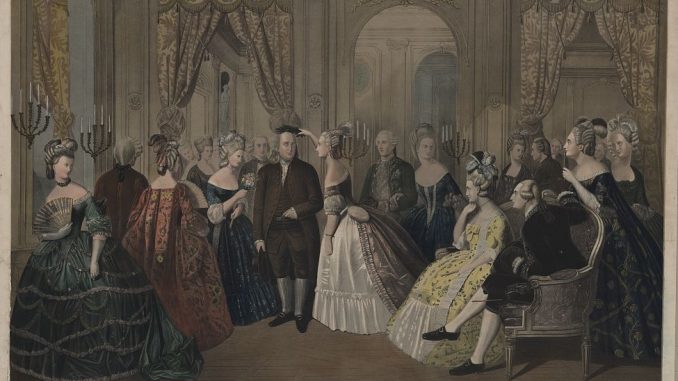
On This Day, February 6th, 1778 – During the American War for Independence, representatives from the United States and France sign the Treaty of Amity and Commerce and the Treaty of Alliance in Paris.
The Treaty of Amity and Commerce recognized the United States as an independent nation and encouraged trade between France and the America, while the Treaty of Alliance provided for a military alliance against Great Britain, stipulating that the absolute independence of the United States be recognized as a condition for peace and that France would be permitted to conquer the British West Indies.
With the treaties, the first entered into by the U.S. government, the Bourbon monarchy of France formalized its commitment to assist the American colonies in their struggle against France’s old rival, Great Britain. The eagerness of the French to help the United States was motivated both by an appreciation of the American revolutionaries’ democratic ideals and by bitterness at having lost most of their American empire to the British at the conclusion of the French and Indian Wars in 1763.
In 1776, the Continental Congress appointed Benjamin Franklin, Silas Deane, and Arthur Lee to a diplomatic commission to secure a formal alliance with France. Covert French aid began filtering into the colonies soon after the outbreak of hostilities in 1775, but it was not until the American victory at the Battle of Saratoga in October 1777 that the French became convinced that the Americans were worth backing in a formal treaty.
On February 6, 1778, the treaties of Amity and Commerce and Alliance were signed, and in May 1778 the Continental Congress ratified them. One month later, war between Britain and France formally began when a British squadron fired on two French ships. During the American Revolution, French naval fleets proved critical in the defeat of the British, which culminated in the Battle of Yorktown in October 1781.



Be the first to comment